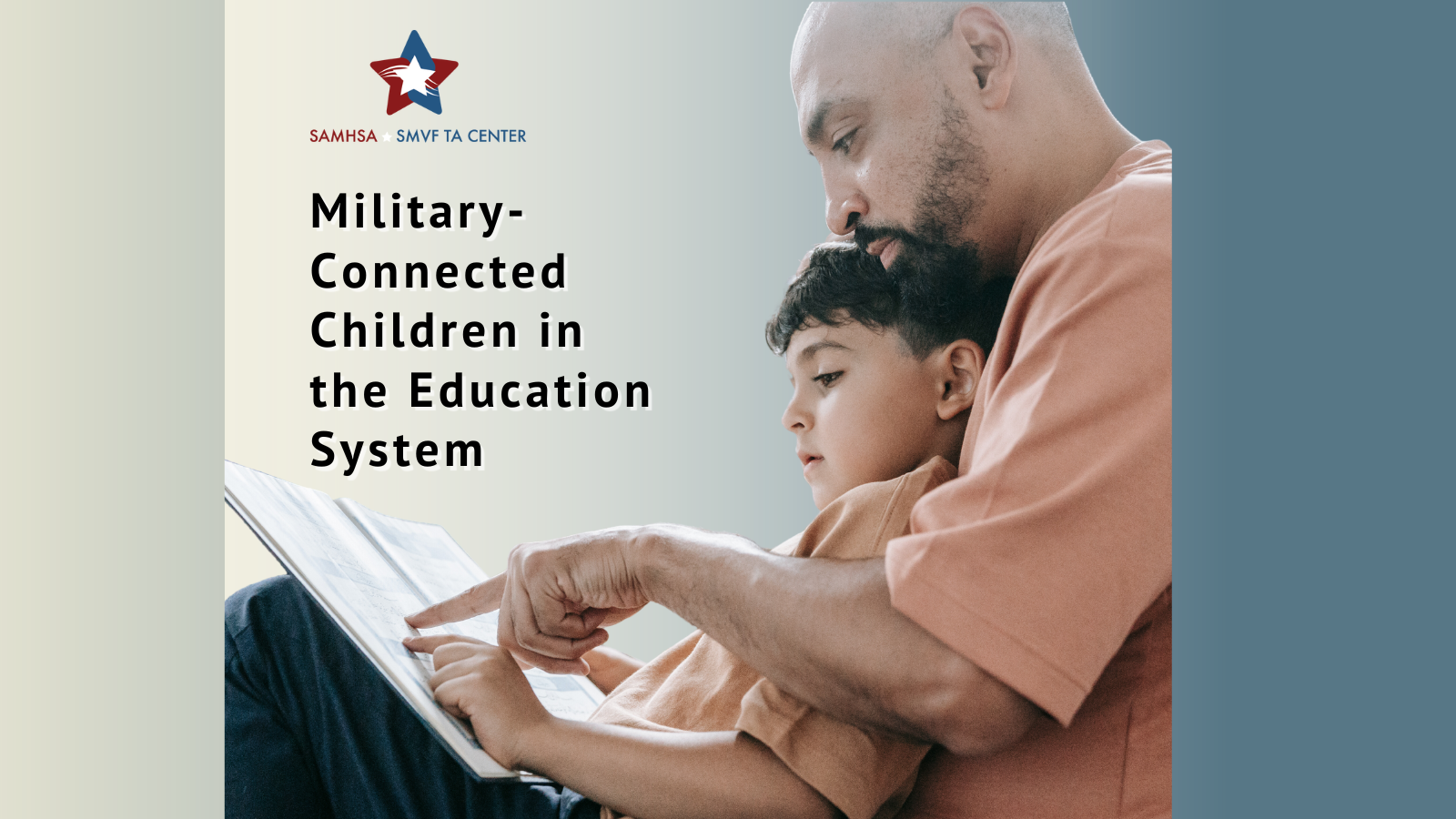Understanding the unique challenges and experiences military-connected children face is critical for service providers and education professionals. A recent webinar, “Military-Connected Children in the Education System,” organized by the Service Members, Veterans, and their Families (SMVF) Technical Assistance (TA) Center, shed light on the crucial work being done to support the growth and development of almost 2 million children of service members and post-9/11 Veterans.
In this webinar, the SMVF TA Center was joined by representatives from the Military Child Education Coalition (MCEC) and the National Center for Child Traumatic Stress (NCCTS) to discuss the experiences of military-connected children and resources for supporting them.
Key Takeaways
Population Size
There are nearly 2 million children of service members in active duty, National Guard, Reserves, and post-9/11 Veterans. With a population of this size, there is a significant need for comprehensive support for military-connected families.
Unique Educational Challenges
Military-connected children face distinctive challenges, including frequent relocations—an average of six to nine moves during a student’s K-12 education. These transitions often disrupt the academic and social continuity of their learning experiences.
MCEC’s Role
The webinar provided an overview of MCEC’s efforts to address these challenges, focusing on the organization’s commitment to the growth and development of military-connected youth. MCEC’s Purple Star Schools Initiative was highlighted.
Purple Star Schools Initiative
MCEC’s Purple Star Schools Initiative aims to recognize and support schools demonstrating a commitment to military-connected children. The initiative serves as a beacon for creating supportive environments within educational institutions.
Collaboration Between MCEC and NCCTS
The collaboration between MCEC and NCCTS was emphasized as a crucial partnership. Together, they work to establish multi-tiered systems of support (MTSS) tailored to the unique needs of military and Veteran children.
Multi-Tiered Systems of Support Implementation
Insights were shared on how multi-tiered systems of support can be implemented. Multi-tiered systems of support ensure a holistic support system that addresses not only educational challenges but also the emotional and psychological aspects of military-connected children’s well-being.
Comprehensive School Counseling Models
The presenters highlighted the importance of comprehensive school counseling models to foster the holistic development of military-connected children. They emphasized the need for a tailored approach that recognizes and accommodates military-connected children’s unique circumstances.
Conclusion
Watch the full webinar for a comprehensive understanding of the initiatives, strategies, and collaborative efforts aimed at supporting military-connected children. As we collectively work towards creating nurturing environments for these students, staying informed and engaged is key to making a positive impact on their educational journey.
Access the full webinar to delve deeper into the insights shared! Your commitment to understanding and addressing the unique needs of military-connected children is a vital contribution to their success.
This blog post was developed with the assistance of generative artificial intelligence.


